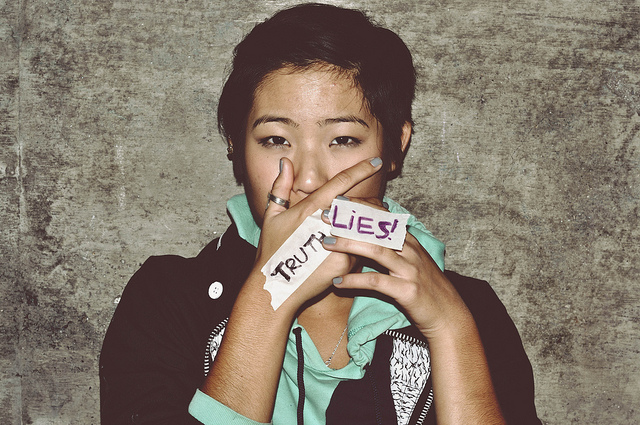Looking back at my media feed over the last six months, I have to say, lying is the new black.
Brian Williams, Belle Gibson, “Jackie” from that infamous Rolling Stone article—these are just three examples of people caught in major lies.
Granted, as someone pushing 40, I can’t say I haven’t told a few fibs in my life. For example, I remember being 16 and telling my then-high boyfriend his hair loss wasn’t that noticeable, when in fact it was. But there’s a difference between telling “little lies” and being caught in absolute fabrications like the individuals above.
Whenever people, especially public figures, are caught in major lies, there’s a certain sense of glee from the peanut gallery. Even if we don’t say it publicly, we feel a sense of moral superiority that goes something like: “I’d never go that far!”
And despite the fact that shaming is wrong in general, there may actually be an upside to public shaming. For example, Peter Singer, professor of bioethics at Princeton University, is quoted by the Sydney Morning Herald as saying: “Public shaming can be a useful mechanism for improving moral standards.” However, as he and others caution, there’s a limit as to how much good shaming can do and too much may be damaging.
Still, the question remains: why do some of us tell major lies in the first place, and why do so many of us believe them?
In an interview about the Gibson case, psychologist and author Wendy L. Patrick says the answer to the latter part is simple: we want to believe them—especially if they come across as likable.
In a case like Gibson’s, it makes perfect sense that so many of us fell for her story hook, line, and sinker. Who wouldn’t want to believe that a plucky young woman beat terminal cancer by changing her diet?
Few things are scarier than premature death. Gibson’s claim that she turned things around by gleaning information about nutrition certainly gives us the appearance of someone taking control and defeating something as unpredictable and uncontrollable as cancer.
Whereas, Jackie’s graphic, now-discredited account of a ritualized gang rape in Rolling Stone certainly isn’t uplifting—it’s so horrific, it taps into our deepest fears and presses our empathy buttons. (As a survivor of sexual assault, when I read that for the first time, I was thankful that despite how bad my own experience was, it wasn’t nearly as bad as what I just read.)
Ironically, the bigger the lie, the more likely we are to believe it.
The fact that we have access to vast amounts of information at the touch of a button makes us think that no one would be dumb enough to falsify anything in this day and age of Google.
However, people can and do lie all the time, and the majority of liars we encounter, and whose lies have the deepest impact on our lives, are those we consider our friends or lovers.
Years ago, I worked in mortgages and heard stories from people who had taken out loans for friends, family members and spouses. I heard it time and again: “I trusted this person. I believed them, and they ended up betraying me.”
It’s impossible to go through life without falling for at least one major lie, but there is something we do to lessen the times it happens: retain a healthy bit of skepticism.
Despite what we’re lead to believe, it isn’t rude to question or ask for proof when someone makes extraordinary claims or tells a story that just doesn’t sound right. For those of us who write, it’s imperative to check sources before we ever think of publishing.
Personal relationships are trickier since by their very nature we’re more personally invested, but during the honeymoon phase of a romantic relationship or friendship, it’s important to be aware of any red flags and listen to our guts if something doesn’t feel right.
Likewise, we should be careful with the lies we tell to ourselves or others. Even little lies can snowball into big ones or take on a life of their own that we never anticipated. And as anyone who’s ever told a lie can attest to, making up a story requires remembering details that are much harder to recall than ones that are true.
Sometimes honesty isn’t just the best policy, it’s also the easiest.
~
Author: Kimberly Lo
Editor: Evan Yerburgh
Photo: Flickr









Read 0 comments and reply